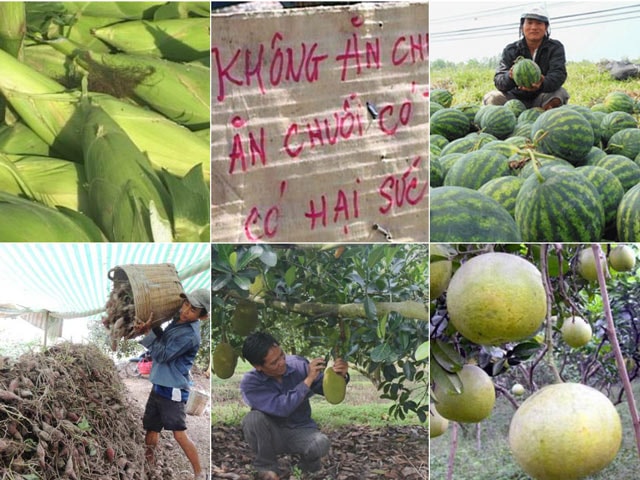'Strong hand' to suppress false rumors that harm farmers
(Baonghean) - Certainly, there must be a reason for the rumors to be spread. It does not exclude the possibility of economic sabotage, unfair competition or spreading false information to buy at low prices.
Recalling 10 years ago, on July 16, 2006, BBC News and the British Daily Mail published the news "Women who eat a lot of grapefruit will have a risk of breast cancer". This information was based on the results of a survey of 50,000 women by two universities in Hawaii and Southern California in the US: Women who eat 1/4 or more of a grapefruit every day will increase their risk of breast cancer by up to 30%.
Although the grapefruits studied by the two universities are grapefruits grown in some American countries and have nothing to do with grapefruits in Vietnam, some domestic newspapers have translated and hastily published the news without clearly stating the origin of the grapefruits, causing grapefruit farmers in Tien Giang province to lose more than 100 billion VND. An extremely large number.
 |
| False rumors cause agricultural products to stagnate. Photo: Internet |
In the following years, farmers were continuously hit by rumors that made their products sluggish and resulted in heavy losses. For example, in Tinh Ha commune, Son Tinh district, Quang Ngai province, there were rumors that eating pesticide-laced dwarf bananas would cause cancer, causing farmers to feed the bananas to cows... Most recently, there was a rumor that the mango seed membrane was made of plastic. Longan in Hung Yen was treated with sulfur to make the fruit shiny. Or tilapia fish were raised with pesticides in the Mekong Delta...
Certainly, once a rumor is spread, there must be a reason. It does not exclude economic sabotage, unfair competition or spreading false information to buy at low prices. Therefore, the authorities, especially local authorities, need to take timely measures to prevent and dispel rumors to help people stabilize the prices of agricultural and aquatic products. In addition, it is necessary to clearly understand the source and deal firmly with those who make fun of and sabotage the rice bowls and clothes of farmers. Currently, some localities have not responded promptly to rumors, so many farmers have to "cry".
As everyone knows, in the age of technology development, just a rumor posted online, in just a few seconds the whole world will know. Therefore, it is necessary to stop it at the root. At the same time, propaganda for local people to know, distinguish right from wrong, to avoid being taken advantage of by bad people, spreading false information causing rumors to spread like an epidemic.
As for the media, especially online newspapers, they should consider and verify clearly before reporting; because even though the posted content can be immediately canceled, traces will still remain on Google Search in the Cache section. Currently, the social network Facebook is very strong, as soon as the newspaper posts news, netizens will tag and share it at lightning speed. In addition to providing information and entertainment, the press also has the task of guiding public opinion. If the information is wrong, it will cause confusion for the people, the most miserable are still farmers, the workers who work hard in the fields all year round to create genuine products...
In addition, the press also needs to "strongly" suppress false rumors through positive information, clear explanations from scientists, authorities and experts so that people can feel secure in using those agricultural and aquatic products without fear of affecting their health; contributing to helping stabilize market prices, without disorder. Only positive information and quick "responses" to false rumors can help farmers feel secure in working, producing and living well with the profession they have chosen.
Hoang Duy
